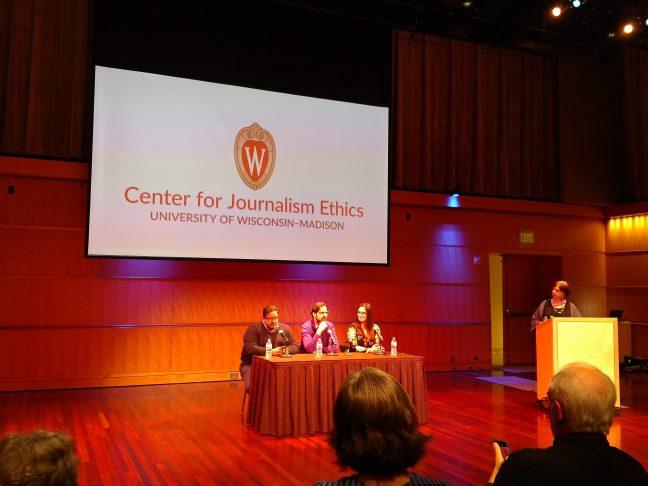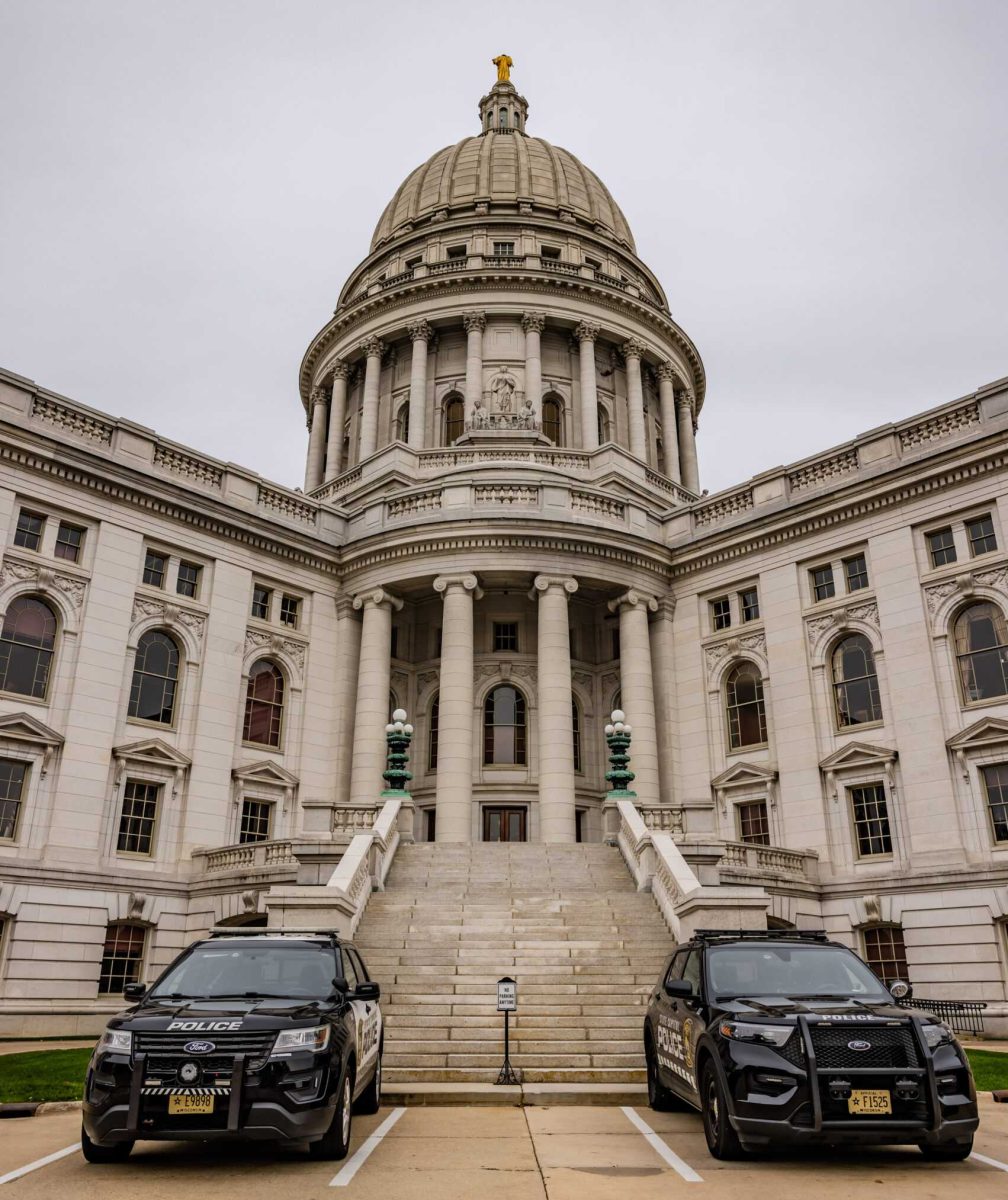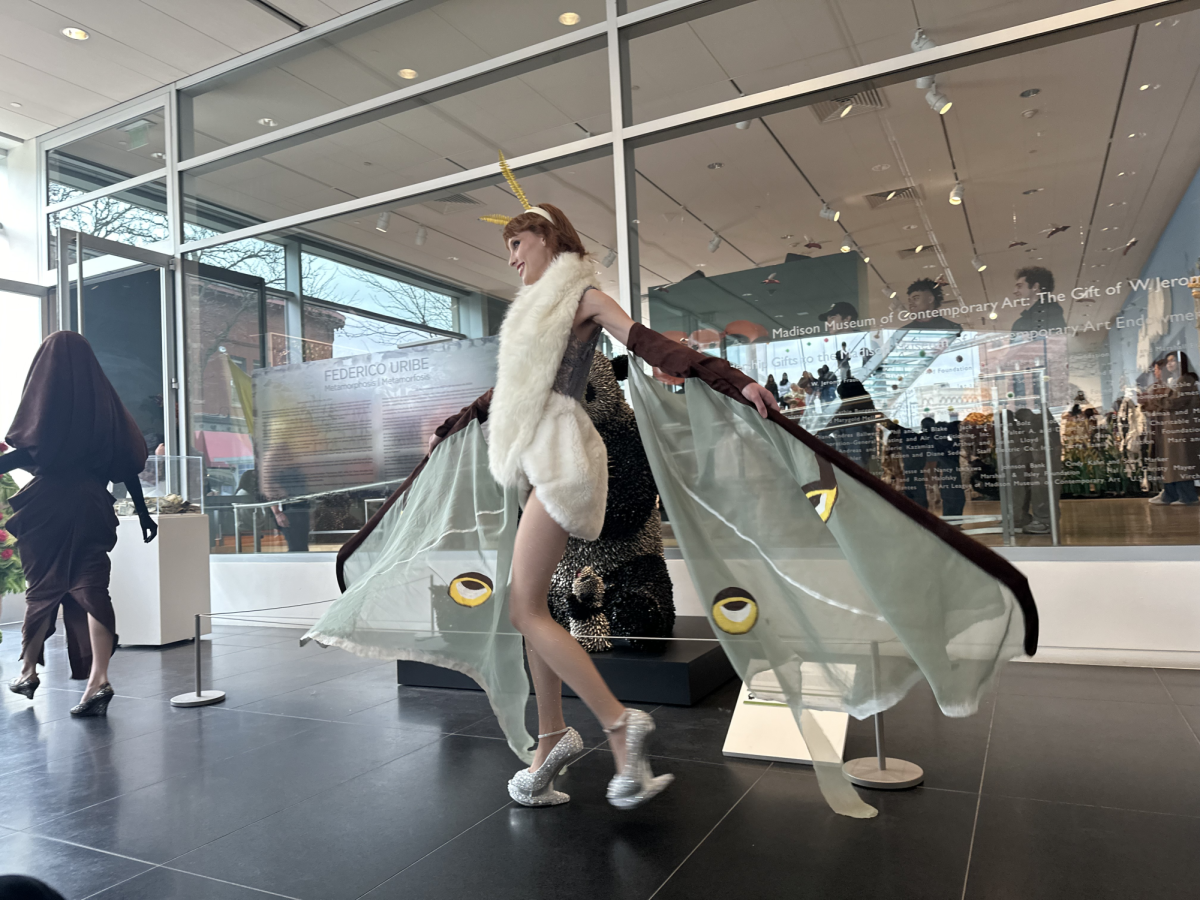A trio of panelists discussed journalism ethics in the modern age and how to cover a president who frequently controls and diverts media attention Wednesday at the Overture Center.
NPR news correspondent David Folkenflik, Dhavan Shah, a Maier-Bascom Professor at the University of Wisconsin School of Journalism and Mass Communications and Jessie Opoien, a state government and politics reporter at the Capital Times were all panelists at the event.
Folkenflik and Shah made opening remarks about what sort of attention should be given to President Donald Trump’s rhetoric. Folkenflik said the inflammatory issues are often given precedence.
Shah said Trump has figured out how to “distract rather than direct” media attention away from other issues.
Election 2018: Amid expectations of a ‘Blue Wave,’ Wisconsin selects a Democratic ticket
“The media loves to cover every time Trump attacks the media,” Shah said. “This happens regularly, he does this on purpose and the media gleefully covers it. He’s set himself up in opposition to the media now, so anything the media says is suspect.”
But both panelists presented significantly different views on how Trump should be covered. Shah said the press should not cover Trump nearly as much as he currently is and strive to cover a wider range of political actors.
Folkenflik said journalists should not simply mirror what people in authority say. He asked the audience if they wanted to live in a society where there is a conscious decision not to cover the president.
“I don’t think we can not cover him,” Folkenflik said. “I don’t think we can even not cover what his Tweets say.”
Wisconsin political reporters hand down advice in turbulent times for journalism
Trump’s rhetoric has an influence on the actions of citizens, federal employees and even foreign governments, Folkenflik said. Foreign governments will look to Trump’s language to the press to figure out how much they can get away with abusing their own press. He cited the Nigerian army, who justified the killing of protesters with words from a Trump speech.
Close to an hour into the panel, Folkenflik announced CNN journalist Jim Acosta just had his press pass to the White House revoked after a “brief physical confrontation” with an intern who was trying to take away Acosta’s microphone during a press conference.
Folkenflik joked that the episode “seems like forever ago.” He told the crowd that there was a “spirited and lively debate” happening on his iPhone about how the event should be reported. He asked his fellow panelists how they would cover the turn of events.
Panel of journalists talk fake news, responsible reporting in 2018
Shah said the Acosta story had pushed “huge” stories out of the national spotlight, namely the recent Tuesday election results, which Shah qualified as a “Blue Wave.”
Opoien said she would cover the story as a brief, a short blurb of approximately one minute.
“You have to talk about it, you have to mention it,” Opoien said. “Do we need to spend five minutes on it? No, probably not.”




















